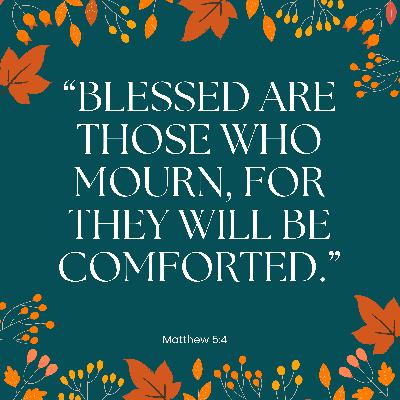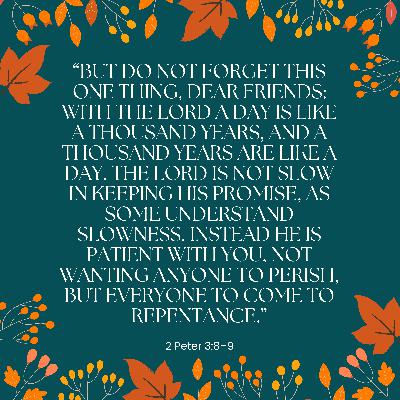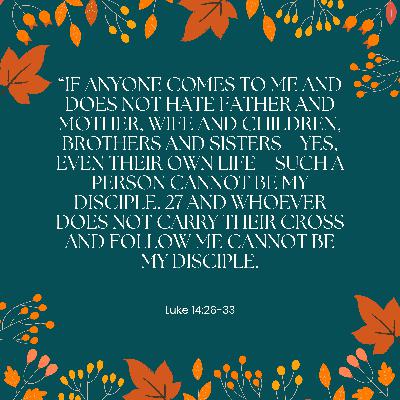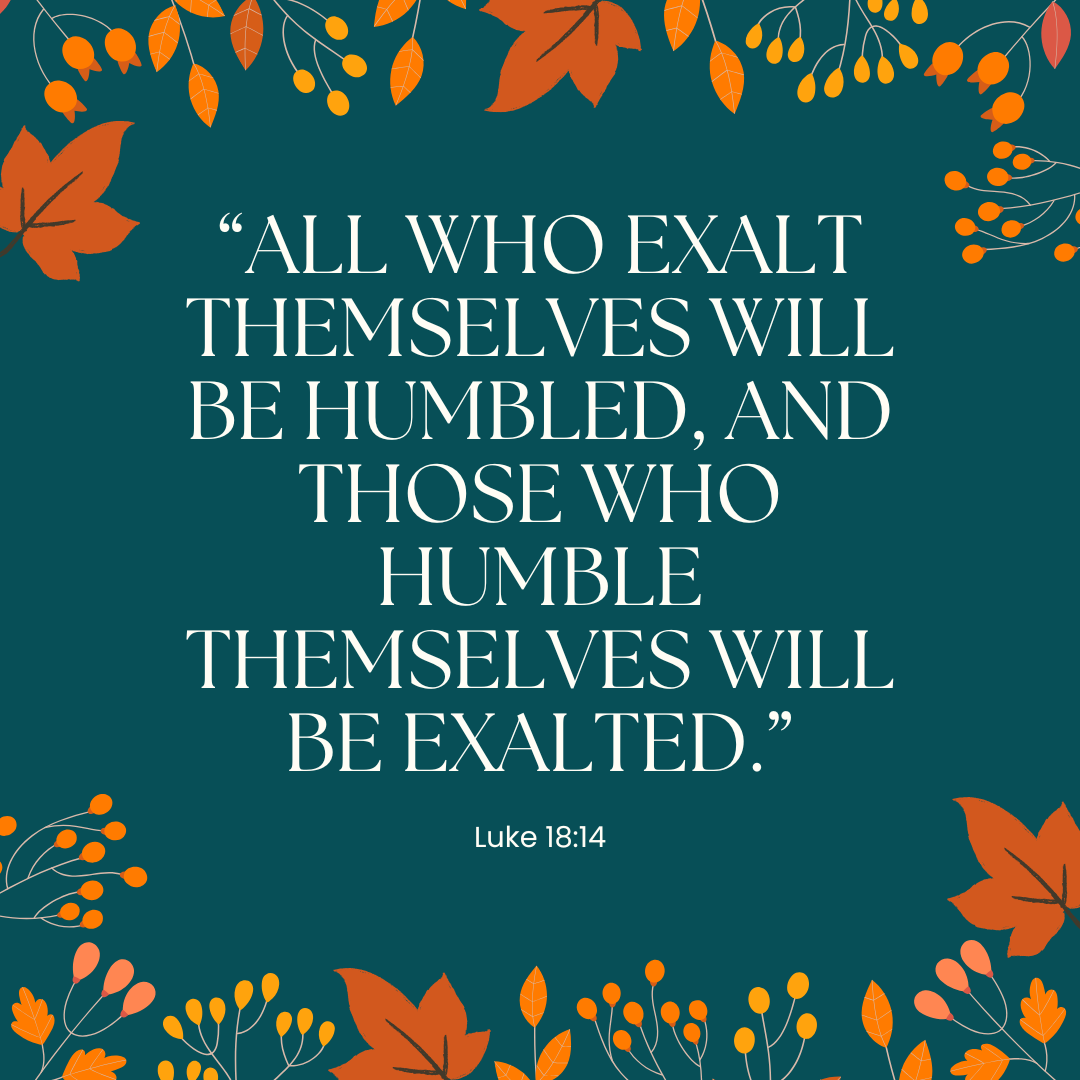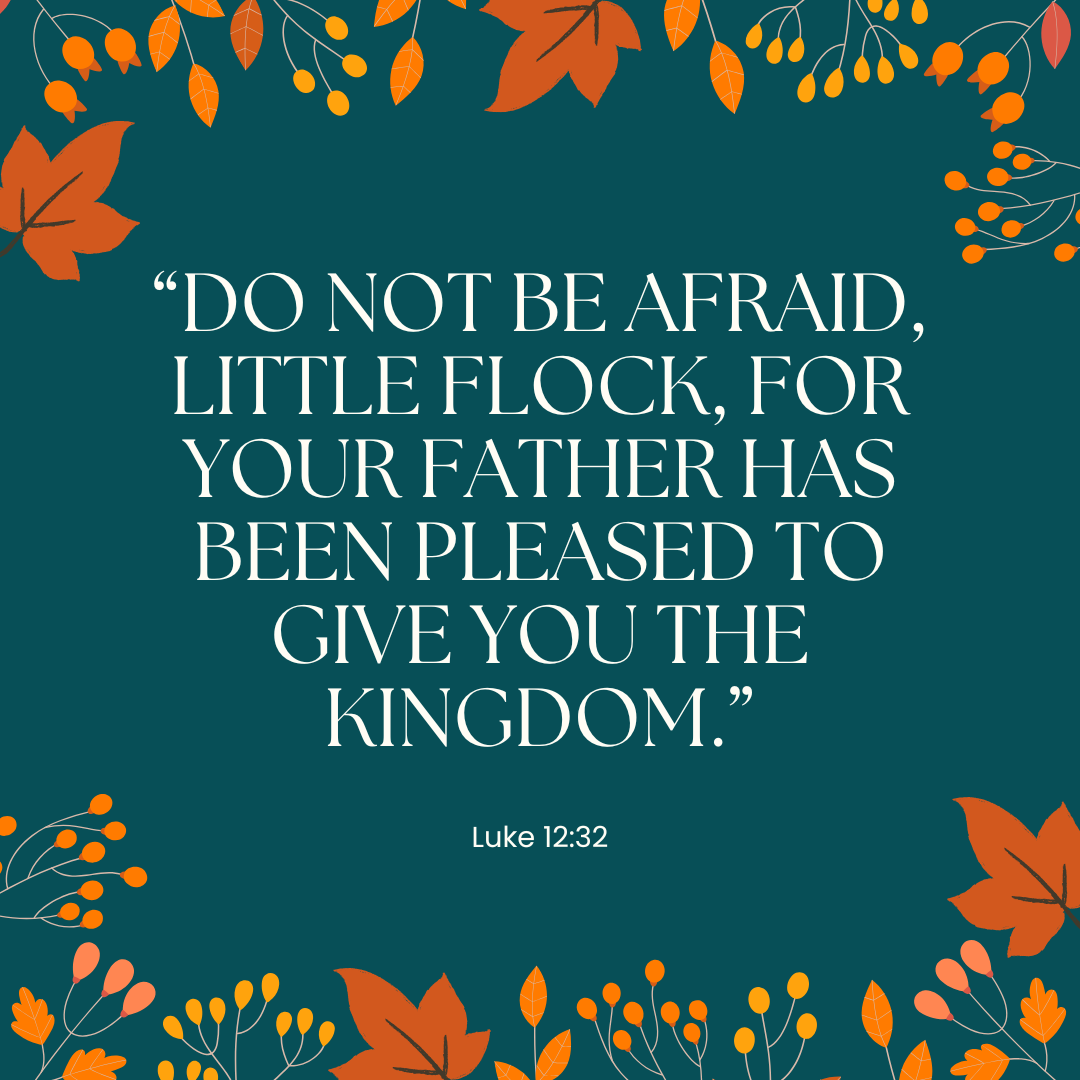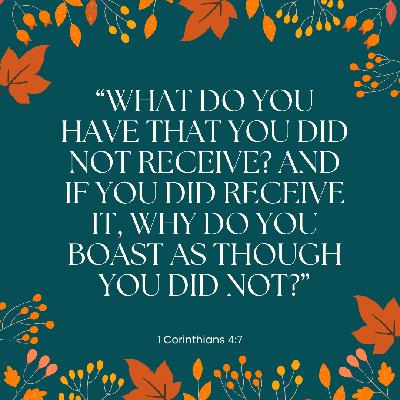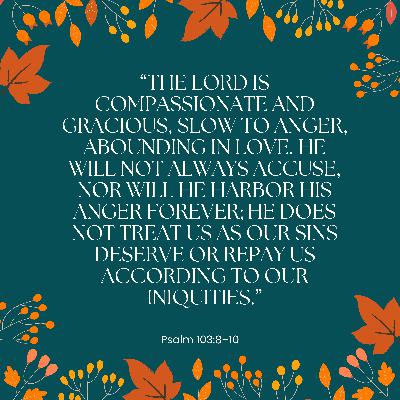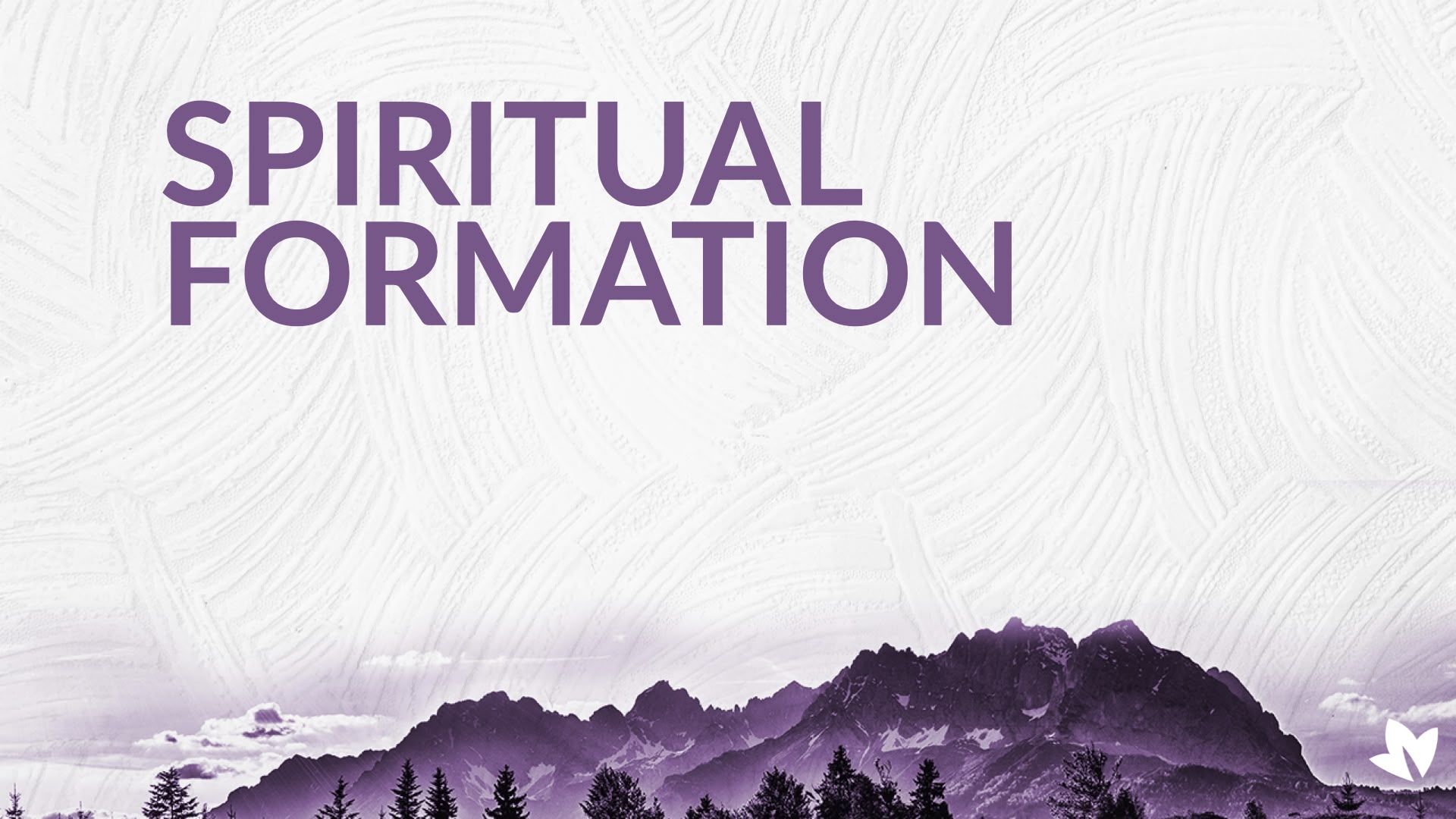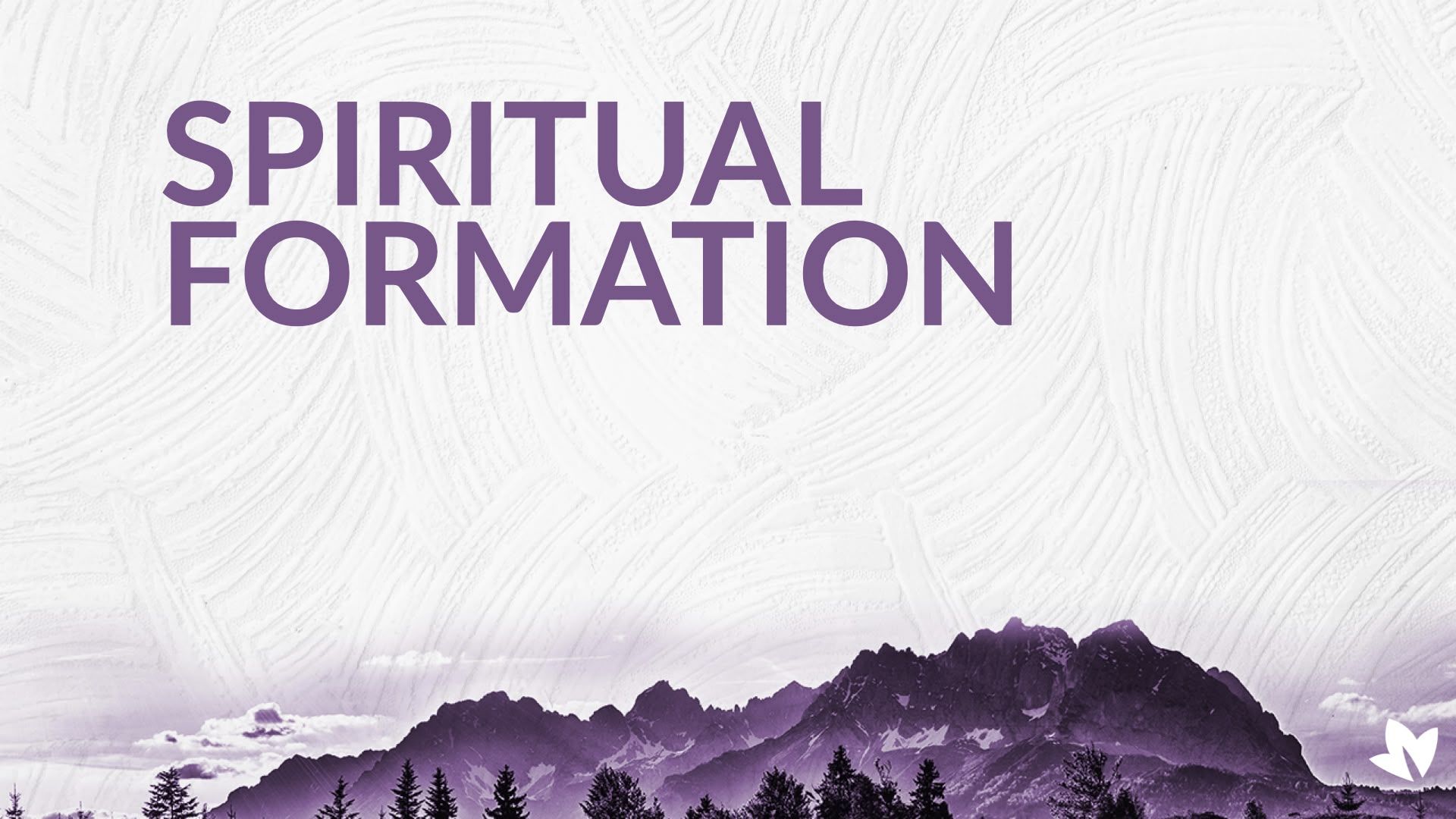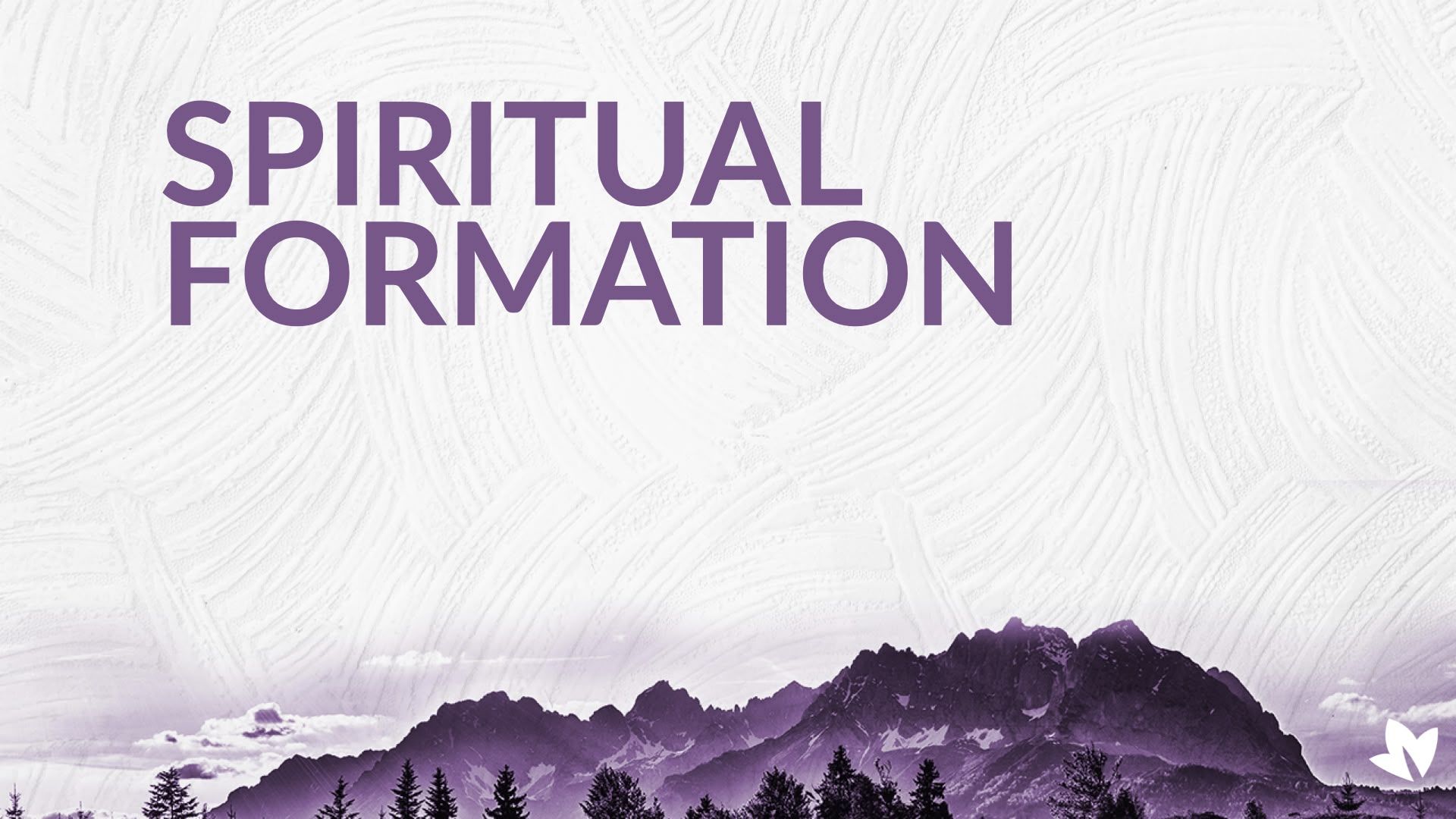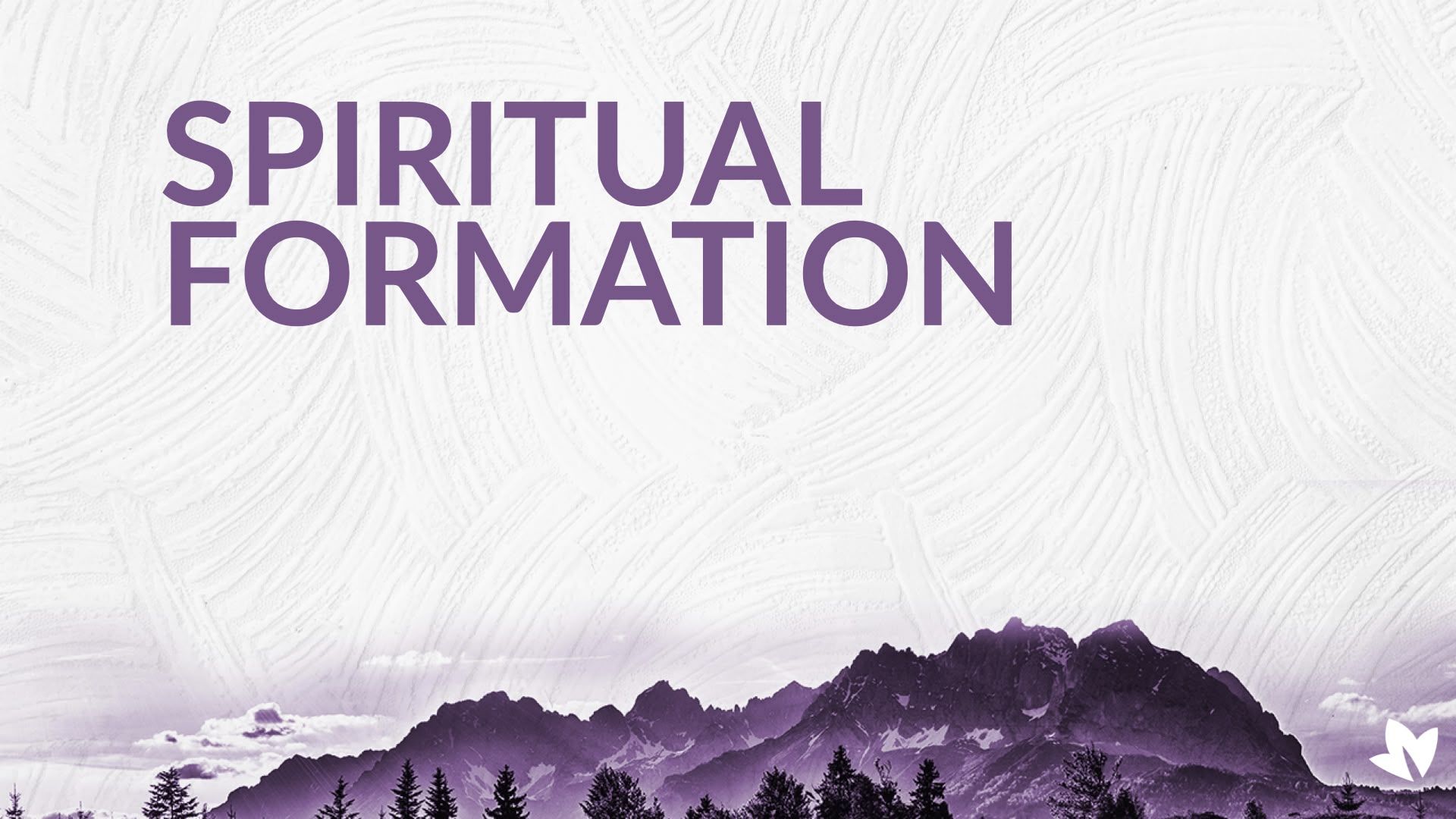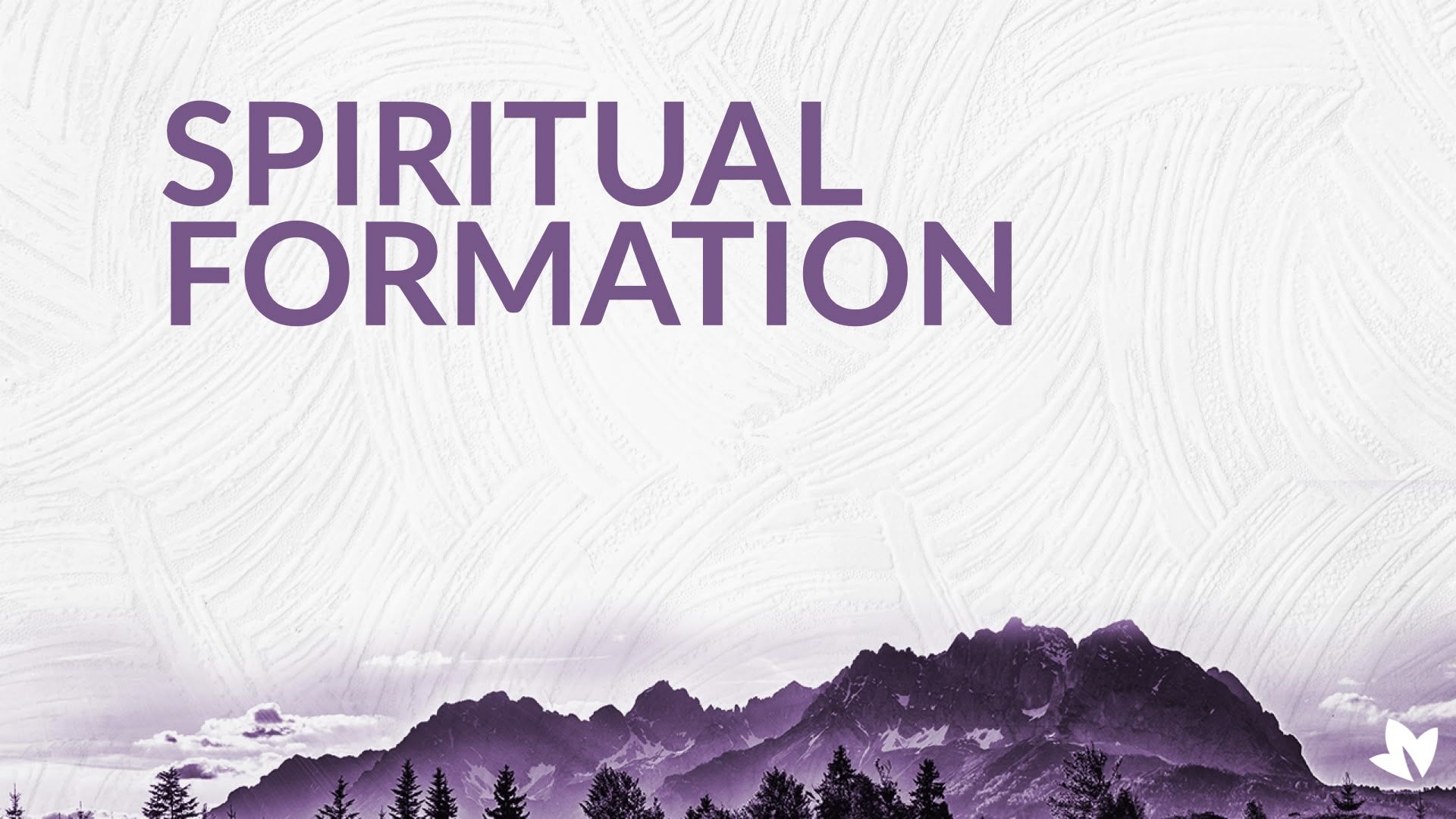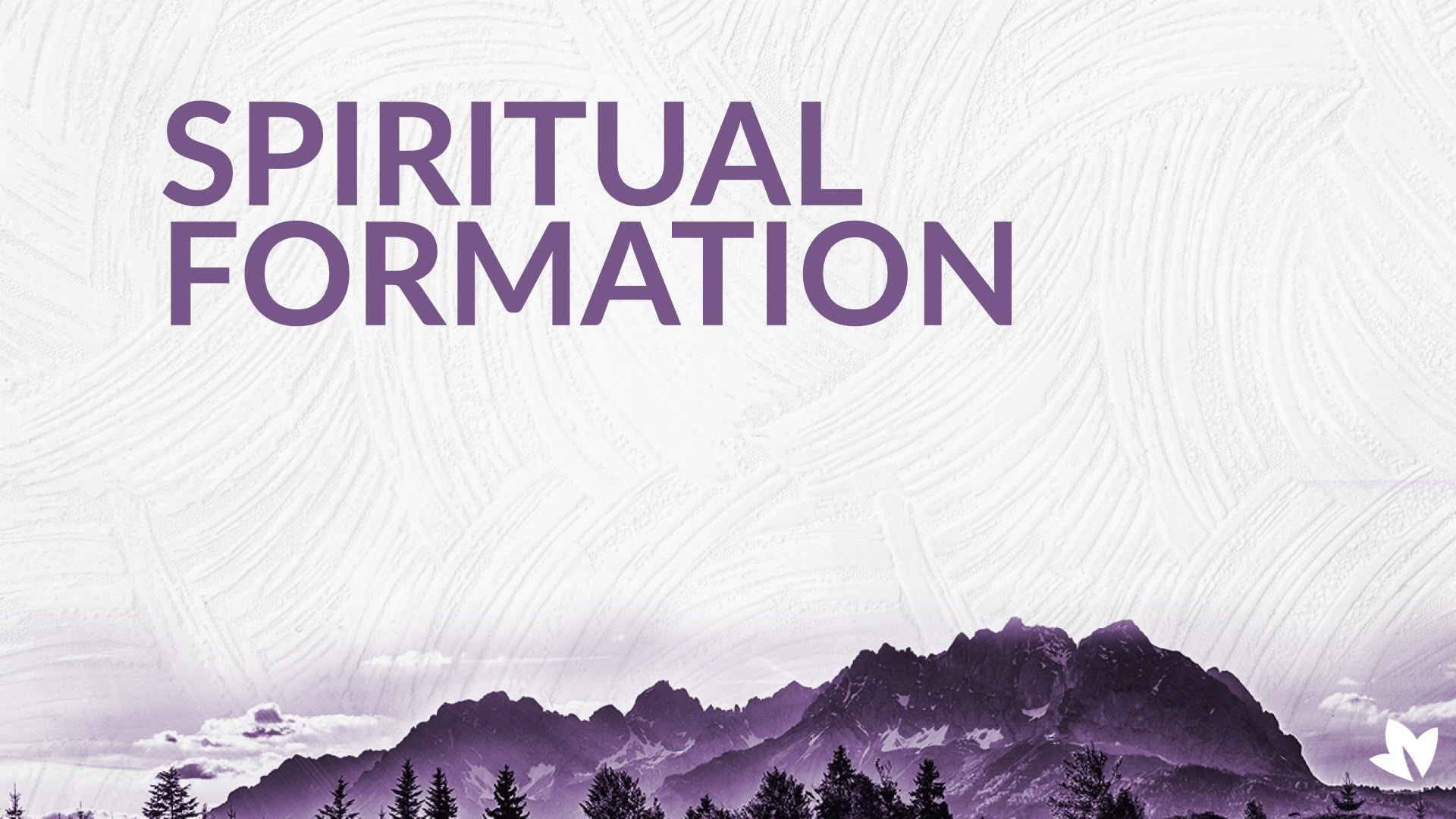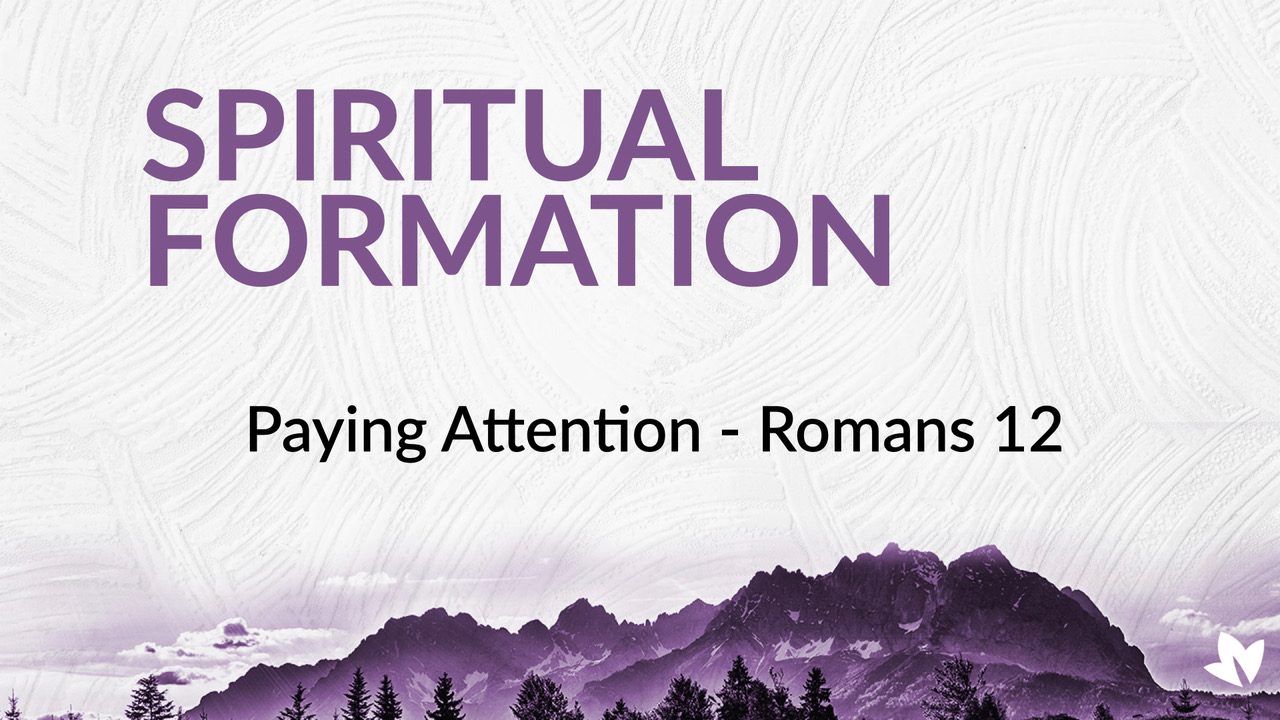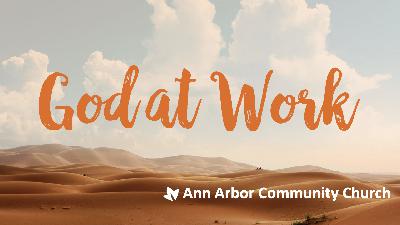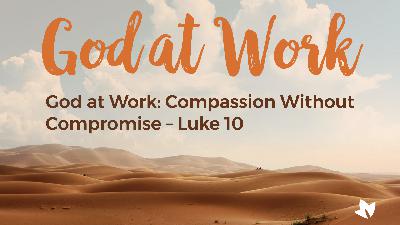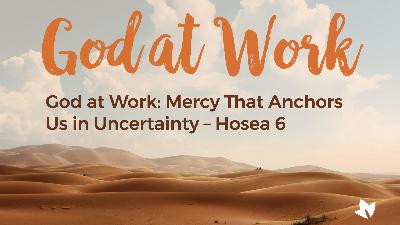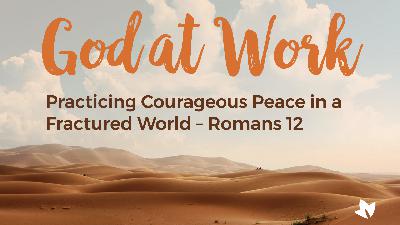Discover Ann Arbor Community Church Sermon Podcast
Ann Arbor Community Church Sermon Podcast

Ann Arbor Community Church Sermon Podcast
Author: Ann Arbor Community Church
Subscribed: 10Played: 321Subscribe
Share
© Ann Arbor Community Church 2025
Description
Ann Arbor Community Church is a multi-ethnic, multi-generational Christian community rooted in a centered-set approach to faith. We blend the vibrant faith of the historic Christian creeds with a thoughtful, engaged response to today’s culture. Whether you are filled with faith, full of questions, or somewhere in between, you belong here. https://a2communitychurch.org
962 Episodes
Reverse
All Souls: A Liturgy for Our Losses (Matthew 5:4) - Pastor Donnell Wyche - a2vc.org. Like us on fb.com/vineyardannarboror watch our livestream Sundays @ 11:00am - vimeo.com/annarborvineyard Summary: In this All Souls Day message, Pastor Donnell Wyche pauses the church’s Parables of Jesus series to offer a space for grief, reflection, and healing. He begins by expanding the meaning of All Souls Day beyond remembrance of those who have died to include all the losses that shape our lives—dreams unfulfilled, relationships broken, jobs lost, health struggles, and even disillusionment with the church itself. Through humor and compassion, Pastor Donnell invites listeners to acknowledge these everyday griefs as part of the human story that God meets with tenderness and grace. Drawing from Matthew 5:4, “Blessed are those who mourn, for they will be comforted,” he reframes mourning not as a failure of faith but as an act of honesty and spiritual courage. Citing Jesus’ own experiences of sorrow—his weeping over Lazarus and compassion for the helpless crowds—Pastor Donnell reminds the congregation that grief is not weakness but love in action. “Mourning," he says, "allows us to bear witness to what still matters and to resist the temptation to numb ourselves to suffering. When held with God and community, mourning becomes a holy protest against injustice and indifference." The sermon culminates in a moving communal liturgy. Congregants are invited to light candles for loved ones who have died and to name other kinds of loss silently before God. Through these embodied acts of remembrance and prayer, the community practices the comfort Jesus promises—acknowledging that grief takes time, that pain can rearrange our priorities, and that within sorrow lies the seed of compassion and enduring hope.
The Parables of Jesus: The Parable of the Weeds - Jonathan Hurshman - a2vc.org. Like us on fb.com/vineyardannarboror watch our livestream Sundays @ 11:00am - vimeo.com/annarborvineyard Summary: Jonathan Hurshman brings us an honest, heartfelt sermon examining Matthew 13:24-30. He explores cultural context of the hearers and the world that Jesus was speaking to brilliantly, and invites us to be people who take Jesus at his word, trusting that Jesus is far more brilliant than we are. At the core of his sermon, Jonathan uncovers the question of the parable, how will we live as people of the kingdom of God, in a world where evil grows up right next to the good?
The Parables of Jesus: Justice as Restored Dignity (Matthew 20:1-16) - Pastor Donnell T. Wyche - a2vc.org. Like us on fb.com/vineyardannarboror watch our livestream Sundays @ 11:00am - vimeo.com/annarborvineyard Summary: In this message on Matthew 20:1–16, Pastor Donnell revisits the workers-in-the-vineyard parable with fresh eyes. Rather than reading it through an hourly-wage fairness lens, he reframes the story around God’s justice as mercy, compassion, and restored dignity. The landowner’s repeated trips—at dawn, 9 a.m., noon, 3 p.m., and even 5 p.m.—are not about efficiency but about refusing to leave anyone unseen, unchosen, or ashamed in the “unemployment line” of the marketplace. Each return, Pastor Donnell says, is a small act of salvation: an invitation into purpose, belonging, and worth. The tension erupts at payday when latecomers receive a full day’s wage and early workers protest, “You made them equal to us.” Pastor Donnell names what’s exposed: a meritocratic worldview where value is measured by productivity and grace feels like injustice. But the landowner’s gentle reply—“Friend… are you envious because I am generous?”—widens the frame. In God’s kingdom, justice is not a narrow calculus of equal treatment; it is the restoration of those humiliated by exclusion. This is generous justice: respect, dignity, and a living provision that answers the real needs of real people. Pastor Donnell closes pastorally: notice where you feel like a late-day worker—unseen, left behind, still waiting at the gate. Invite God, the generous landowner, into that space. Ask him to call you “friend” and to remind you that your worth has never been measured by productivity or performance. In a world of competing kingdoms—merit versus mercy—Jesus reveals a God who does not demand but gives, who lifts up the overlooked, and who will not end the day with anyone still standing alone.
The Parables of Jesus: The Parable of the Pharisee and Tax Collector - Pastor Hannah Witte - a2vc.org. Like us on fb.com/vineyardannarboror watch our livestream Sundays @ 11:00am - vimeo.com/annarborvineyard Summary: Pastor Hannah continues our fall journey through Jesus’ harder parables by inviting the church to “rest our whole weight on God” and to take Jesus at his word. Teaching from Luke 18:9–14, she frames the parable for a mixed crowd—newcomers and long-timers alike—reminding us that we are becoming a people transformed by Jesus, learning to belong across differences with joy, freedom, and boundless generosity. In this story, a respected Pharisee and a despised tax collector both come to pray; one trusts his resume, the other pleads for mercy. Jesus’ punchline overturns expectations: it is the humbled tax collector—not the exemplary religious figure—who goes home justified. To hear the scandal of the story, Pastor Hannah explains who Pharisees and tax collectors were in their world: the admired guardians of religious life versus the socially ostracized collaborators with Rome. She names the pain of spiritual contempt in the Pharisee’s prayer (“God, I thank you that I am not like…”) and gently asks us to notice who fills that blank in our own hearts—an enemy, a political group, a person who has harmed us. Holding together truth and mercy, she recalls Saul’s transformation into Paul as proof that even oppressors are not beyond God’s interrupting grace. God hates evil, not people; the kingdom exposes pride and exalts humility. Pastor Hannah’s invitation is simple and searching: trade merit for mercy. Like the tax collector, we come home to God not by performance or pedigree but by asking, “God, have mercy on me, a sinner.” She offers concrete responses—receive prayer, come to the Table, and even let communion become a two-fold prayer: mercy for ourselves as we take the bread, mercy for those in our “blank” as we drink the cup. In God’s economy there is no earning—only giving and receiving—and those who humble themselves will be lifted up.
The Parables of Jesus: The Rich Fool - Pastor Hannah Wyche - a2vc.org. Like us on fb.com/vineyardannarboror watch our livestream Sundays @ 11:00am - vimeo.com/annarborvineyard Summary: Pastor Hannah continues our fall series on Jesus’ harder parables by welcoming newcomers into a community learning to live in God’s unfolding story—transformed by Jesus and belonging across differences with freedom, joy, and boundless generosity. Setting the scene in Luke 12:13–21, she notes how a man interrupts Jesus to demand a fairer inheritance, revealing a heart preoccupied with money. Jesus’ warning—“Be on your guard against all kinds of greed; life does not consist in an abundance of possessions”—frames the parable of the rich fool, whose bumper harvest leads him to hoard rather than share. God’s verdict, “You fool,” exposes the tragedy of living as if life and wealth belong to us and as if our barns are the point. Pastor Hannah emphasizes that Jesus isn’t playing family arbitrator; he’s exposing the inner logic of greed that assumes surplus is “for me.” The rich man’s monologue—“my crops, my barns, my grain”—makes no room for God or neighbor. In contrast, Scripture reveals a generous Father delighted to give his children the kingdom. Earthly wealth cannot cure spiritual poverty, and death renders hoarded treasure useless. To be “rich toward God” is to let God’s generosity reframe our identity and our resources, so that our lives announce the nearness of the kingdom through concrete mercy and open-handed care for the poor. Moving from diagnosis to practice, Pastor Hannah offers simple, tangible ways to disrupt greed and cultivate generosity: take breaks from nonessential spending and give the savings away; treat raises as opportunities to increase giving; fast or simplify meals in solidarity with the poor; sell unused possessions to bless others; even carry cash prayerfully to give as the Spirit leads. She shares a moving story of a hidden gift arriving the day a congregant’s paycheck failed, awakening joyful praise: “You are real; you see me.” The invitation is clear: name greed’s pull, adopt practices that form a generous heart, and become the joyful people whose stories at life’s end are rich with God’s provision shared for everyone’s flourishing.
The Parables of Jesus: Love and Liberation (Luke 16 & Mark 10) - Pastor Donnell Wyche - a2vc.org. Like us on fb.com/vineyardannarboror watch our livestream Sundays @ 11:00am - vimeo.com/annarborvineyard Summary: In this sermon, The Parables of Jesus: Love and Liberation, Pastor Donnell Wyche explores two passages—Luke 16’s parable of the unjust steward and Mark 10’s encounter with the rich young ruler—to reveal a God who prioritizes mercy, freedom, and love over judgment and accounting. Pastor Donnell begins by reimagining the parable of the unjust steward, challenging traditional interpretations focused on fairness or stewardship. Instead, he suggests the story unveils a merciful master—a type and shadow of God—who absorbs loss rather than demands repayment. This master, like God, refuses to operate on the logic of karma or retribution, inviting listeners to see the cross not as a transaction of debt but as an announcement of divine liberation. Building on this framework, Pastor Donnell introduces the Christus Victor atonement theory, which sees Jesus’ work on the cross as the decisive defeat of the powers that enslave humanity—sin, death, shame, violence, and fear. Rather than satisfying an angry God, Christ’s victory liberates us from these forces that distort our identities and relationships. Through examples of Jesus healing the sick, casting out demons, feeding the hungry, and forgiving sins, Pastor Donnell paints a vivid picture of the kingdom of God breaking into the world wherever bondage is replaced by freedom. Each act of compassion and mercy becomes an announcement that God’s reign is here and that liberation, not condemnation, is the heart of the gospel. Turning to the rich young ruler, Pastor Donnell invites listeners to see a man not as a villain but as deeply sincere—and deeply anxious. Though devout and blessed, the ruler still feels restless, unable to imagine life apart from his wealth. Jesus’ loving gaze—“he looked at him and loved him”—becomes the center of the gospel, revealing that belonging precedes transformation. Jesus doesn’t shame the man but names the power that holds him captive and invites him into freedom. Pastor Donnell concludes with a pastoral challenge: to name the powers that hold us captive—money, fear, anxiety, status—and to ask God not for help balancing our moral ledgers but for liberation. In Christ, he reminds us, freedom is both the invitation and the outcome of divine love.
The Parable of the Unjust Steward (Luke 16:1–9) - Pastor Donnell Wyche - a2vc.org. Like us on fb.com/vineyardannarboror watch our livestream Sundays @ 11:00am - vimeo.com/annarborvineyard Summary: In this week’s message, Pastor Donnell Wyche launches our new series on The Parables of Jesus with one of the most perplexing stories—The Parable of the Unjust Steward (Luke 16:1–9). On the surface, Jesus seems to commend a dishonest manager who manipulates accounts for his own survival. This shocking twist unsettles our assumptions about morality, fairness, and what God expects of us. But Pastor Donnell reminds us that Jesus often uses surprising, even uncomfortable stories to reveal deeper truths about grace, forgiveness, and the nature of God’s kingdom. By comparing this parable with the story of the Prodigal Son in Luke 15, Donnell shows that both center on sin, mercy, and the restoration of broken relationships. Just as the father in the Prodigal Son story does not demand repayment, the master in the parable does not extract punishment, even when it is deserved. This challenges long-held “economic” views of the cross—where sin is seen as a debt that must be repaid and instead reveals a God who chooses mercy over retribution. Jesus’ death on the cross is not a transaction to appease God, but the fullest revelation of God’s forgiving love. The parable invites us to honesty about our own lives. Like the steward, we often “cook the books”—hiding truths, justifying ourselves, or finding worth in what we produce. Yet Jesus calls us not to repayment but to confession: “God, I cannot repay—meet me with your mercy.” Our freedom lies not in what we can offer but in God’s gracious love, which restores, forgives, and sustains us.
Spiritual Formation: Solitude - Pastor Hannah Witte - a2vc.org. Like us on fb.com/vineyardannarboror watch our livestream Sundays @ 11:00am - vimeo.com/annarborvineyard Summary: Spiritual Formation series, Pastor Hannah Witte reflects on the practice of solitude. Drawing from Mark 6:30–31, where Jesus invites his disciples to step away from the swirl of activity and find rest, Hannah reminds us that Jesus values not our productivity but the condition of our souls. Solitude, she explains, is a spiritual discipline that slows us down, helping us step away from busyness, noise, and distraction so we can encounter God’s loving presence. Hannah names the ways our modern lives often mirror the disciples’ exhaustion—filled with endless to-dos, notifications, and demands that leave us weary and disconnected. Without intentional rhythms of rest, we risk grounding our worth in activity and missing the closeness with God we were made for. Through solitude, we learn to be present: not doing or producing, but simply being with God, who restores and sustains us. As she closes, Pastor Hannah offers a practical invitation: try five minutes of solitude each day this week. Whether it’s in the morning before work, at your lunch break, or in the evening, create space to sit with God without hurry. In that quiet place, you may discover what Jesus offered his disciples long ago—that our deepest rest and renewal come not from what we accomplish, but from God’s unwavering presence and care.
Spiritual Formation: Simplification – Rev. Donnell T. Wyche - a2vc.org. Like us on fb.com/vineyardannarboror watch our livestream Sundays @ 11:00am - vimeo.com/annarborvineyard Summary: In this sermon, Pastor Donnell Wyche continues the church’s series on spiritual transformation by focusing on the practice of simplicity. At first glance, simplification seems straightforward—declutter, pare down, and reduce. But Pastor Donnell shows how true simplicity is one of the most difficult spiritual disciplines, because it directly confronts our fears, our desires, and our habits. Drawing from research on the modern American family and everyday examples, he highlights how our possessions weigh us down with hidden costs of time, energy, and anxiety—often leaving us more trapped than free. Through personal stories, including his own struggle with replacing an old car, Pastor Donnell illustrates how possessions can begin to own us rather than the other way around. He challenges listeners to examine their attachments—whether to cars, homes, clothes, technology, or even comfort—and recognize how easily these attachments drift into greed. Scripture reminds us that God has provided enough for all, but not enough for our greed. At the heart of simplicity lies the question: can we trust God with our lives, our security, and our meaning, instead of clinging to things that can never fully satisfy? Pastor Donnell also exposes how cultural forces—what he names “empire”—disciple us into consumption and dissatisfaction, teaching us that happiness comes through acquiring more. By contrast, Jesus calls us to seek first God’s kingdom and to live with contentment in God’s care. Practicing simplicity is not just about reducing possessions but cultivating an inner freedom and detachment that allows us to resist empire, make room for God, and experience the life of joy, peace, and trust that Christ offers.
Spiritual Formation: Spiritual Friendships – Pastor Hannah Witte - a2vc.org. Like us on fb.com/vineyardannarboror watch our livestream Sundays @ 11:00am - vimeo.com/annarborvineyard Summary: This week, Pastor Hannah Witte continued our series on Spiritual Transformation by exploring the gift and calling of spiritual friendships. Drawing from Scripture, she reminded us that God created us not only to walk with Him, but also to walk with each other. Over sixty times in the New Testament, believers are exhorted to “one another”—to love, encourage, confess, pray, and bear one another’s burdens. Spiritual friendships are not optional extras, but essential companions on the journey of becoming more like Jesus. Using the image of snap peas growing together in a garden, Pastor Hannah illustrated how our lives, like those plants, are meant to intertwine—supporting one another and bearing fruit together. Spiritual friendships take time, intentionality, and vulnerability, but they are worth the investment and the risk. Even when friendships are hard, Jesus modeled intimacy and commitment by calling His disciples not servants, but friends. If Jesus valued and risked friendship, so should we. Instead of just talking about friendship, Pastor Hannah invited the congregation to practice it. Groups gathered to read John 15:9–17 together and reflect on the good news of Jesus’ words. In a world marked by loneliness, suffering, and weariness, this was a moment to share, listen, and be reminded that the gospel offers hope, belonging, and strength for the journey.
Spiritual Formation: Sabbath - Pastor Hannah Witte - a2vc.org. Like us on fb.com/vineyardannarboror watch our livestream Sundays @ 11:00am - vimeo.com/annarborvineyard Summary: Pastor Hannah continued our Spiritual Transformation series by teaching on Sabbath as God’s generous gift of rest, joy, and worship. Framing Sabbath through Exodus 20:8–11, she emphasized that “holy” means set apart for a special purpose—and that time itself is the first thing called holy in Scripture (Genesis 2:3). Sabbath (from Shabbat) invites us to stop, rest, delight, and enjoy God, not as a legal burden but as wisdom that forms us into a people who live differently in a hurried world. She highlighted the biblical justice woven into Sabbath: everyone is included in God’s rest—children, workers, immigrants, even animals. Using a chiastic reading of Exodus 20, Pastor Hannah showed how the command centers on extending rest beyond ourselves so no one’s Sabbath comes at another’s expense. An on-stage conversation illustrated the longing and challenge many feel for real, regular rest—and the hope of sharing it widely. Pastor Hannah closed with practical guidance for beginning Sabbath at a humane pace: start small (a few hours or a morning), practice with others for accountability, plan lightly around the four filters (stop, rest, delight, enjoy God), and hold the practice with grace. Transformation costs more than insight, she noted, but Sabbath reorders our lives toward freedom, joy, and generosity—forming us into a community that both receives and extends God’s rest.
Spiritual Formation: Confession and the Practice of Truth - Jonathan Hurshman - a2vc.org. Like us on fb.com/vineyardannarboror watch our livestream Sundays @ 11:00am - vimeo.com/annarborvineyard Summary: In this week’s message, Jonathan Hurshman continued our series on spiritual formation by exploring the practice of self-examination and confession. Drawing from 1 John 1:5–10, he reminded us that spiritual disciplines are not ends in themselves but training that prepares us for life in God’s kingdom. Just as scales prepare a musician or physical training equips a hiker, confession opens us to the transforming work of the Spirit not as a mere transaction for forgiveness, but as a way of walking in light and truth with God and one another. Jonathan showed how confession is about “saying the same thing” as God agreeing with the truth of who we are, both in our brokenness and in our belovedness. He contrasted cultural distortions of truth, whether ignoring, weaponizing, or redefining it with the biblical call to authenticity before God. Confession, then, becomes a practice of freedom: it strips away pretense, unmasks the false self, and creates space for healing and growth in Christ. And when shared in trusted community, confession not only releases shame but also allows us to receive God’s forgiveness through the words of another believer. The sermon closed with practical invitations into this rhythm of truth-telling: breath prayers like “Search me, O God,” the Anglican prayer of confession, the daily examen, and courageous honesty when tempted to hide. As we practice self-examination and confession, we are trained to embrace the truth rather than fear it, to live as our real selves before God, and to become a community marked by mercy, honesty, and grace.
Spiritual Formation: Scripture – Hebrews 4:12 - Martha Balmer - a2vc.org. Like us on fb.com/vineyardannarboror watch our livestream Sundays @ 11:00am - vimeo.com/annarborvineyard Summary: In this second sermon of our Spiritual Formation series, Martha Balmer explores how Scripture can serve as a “structure” in our lives that enables the Holy Spirit’s transforming work. Building on Pastor Hannah’s message about surrender, Martha reminds us that transformation is ultimately about union with God—moving from separation to deep intimacy with Him. This is not merely about fixing what is broken, but about responding to God’s longing for us and allowing His presence to reshape us. Scripture, she explains, is not static words on a page; by the Spirit, it becomes living and active, drawing us into God’s story and shaping us from within. Martha weaves her own journey with Scripture into the message—from memorizing the 23rd Psalm at her grandmother’s knee, to seasons of disciplined daily reading, to times of spiritual dryness when group Bible study sustained her. She notes that simply reading builds familiarity, while deeper study provides discernment tools, but that both can lose vitality without prayerful engagement. True spiritual formation through Scripture, she says, comes when we approach it as a conversation with God, allowing Him to speak personally into our lives. She introduces two historic practices—Lectio Divina and imaginative meditation—as ways to read slowly, notice what stirs in us, respond to God, and rest in His presence. Through practical teaching, Martha explains how Lectio Divina’s four movements (read, reflect, respond, rest) and imaginative meditation’s sensory-rich engagement with biblical narratives can open us to God’s voice in fresh ways. Both methods require slowing down, noticing our assumptions, and trusting that the Spirit will meet us in the text. She encourages us to keep reading and studying Scripture, but to also adopt these prayerful approaches as “structures” that help us say yes to the Spirit’s work—positioning us, like the caterpillar in its chrysalis, for the kind of transformation only God can bring.
Spiritual Formation: Paying Attention – Romans 12 - Pastor Hannah Witte - a2vc.org. Like us on fb.com/vineyardannarboror watch our livestream Sundays @ 10:45am - vimeo.com/annarborvineyard Summary: In her first sermon as a pastor at Ann Arbor Community Church, Pastor Hannah Witte introduced herself with warmth, humor, and a powerful testimony of God’s transformative grace in her own life. She shared her journey from a non-religious upbringing in Columbus, Ohio to a life devoted to Christ, sparked by an invitation to a youth group and a deep encounter with God’s love. Framing her heart for ministry, she emphasized a longing to see all people recognize their belovedness, to participate in renewal in Ann Arbor, and to co-create a diverse, Spirit-empowered church. Rooted in Romans 12, Hannah invited the congregation to consider what it means to be transformed by the renewing of our minds. Using vivid metaphors—a smiling God delighting in our spiritual growth and the metamorphosis of a caterpillar into a butterfly—she challenged listeners to examine the rhythms shaping their lives. Transformation, she said, is not a matter of self-improvement but surrender, and the Spirit does the deep work as we create space through spiritual practices. As the church enters a month focused on spiritual formation, Pastor Hannah laid the foundation for a series exploring four time-tested practices: self-examination, scripture meditation, Sabbath, and solitude. Rather than being conformed to the world around us, we are invited to arrange our lives—like a cocoon—for the Spirit’s renewing work, becoming the people God created us to be. With honesty and hope, Pastor Hannah encouraged the community to pay attention and open themselves to God’s loving transformation.
God at Work: When Justice Demands More – Amos 5 - Rev. Donnell T. Wyche - a2vc.org. Like us on fb.com/vineyardannarboror watch our livestream Sundays @ 10:45am - vimeo.com/annarborvineyard Summary: In this final sermon of the God at Work in an Unstable World series, Pastor Donnell Wyche unpacks the powerful words of the prophet Amos, challenging listeners to reimagine justice not as courtroom judgment but as the flourishing of God’s creation. Drawing from Amos 5 and other prophetic voices, Pastor Donnell explains that God rejects worship when it is divorced from justice. Instead, true devotion flows from our participation in God’s passion for the marginalized, the oppressed, and the poor. Justice, in this vision, is not a religious add-on—it is the very heart of covenant faithfulness. Pastor Donnell urges the congregation to replace inherited notions of justice as punishment with a biblical view of justice as gardening—tending creation so that life can flourish. He reminds us that justice is about proximity, mutual care, and restoration. Whether it’s standing with someone in pain, cultivating dignity in our relationships, or transforming public systems with wisdom and love, we are called to be co-laborers in God’s garden. The sermon closes with a practical framework: immediate justice in our families and workplaces, proximate justice with our neighbors, and civic justice in the broader world. Rather than something reserved for the heroic few, justice is shown to be a daily, Spirit-led act of tending God’s creation—an essential, life-giving calling for every follower of Jesus.
God at Work: When Hope Defies the Darkness - Daniel 1 - Rev. Donnell T. Wyche - a2vc.org. Like us on fb.com/vineyardannarboror watch our livestream Sundays @ 10:45am - vimeo.com/annarborvineyard Summary: In this sermon, Pastor Donnell explores the power of hope in the face of despair, drawing from the story of Daniel’s exile in Babylon. He opens by acknowledging the pressure many of us feel—externally from our world and internally from fear, anxiety, and the urge to numb ourselves. While these responses may seem natural, Pastor Donnell argues they are ultimately unsustainable. What we truly need, he says, is hope: a deep, soul-anchoring confidence that God is still at work, even in the midst of instability. Daniel’s story is presented as a model for living with hope in an unstable world. Despite being stripped of his land, language, name, and freedom, Daniel refuses to assimilate or disappear. Instead, he chooses faithfulness, trusting that God is present even in Babylon. Pastor Donnell draws out Daniel’s quiet resistance: his refusal to eat royal food, his steadfast prayer life, and his unshaken identity. In doing so, Daniel becomes a witness to God’s power, even converting the hearts of kings through his hopeful trust in God’s presence and justice. Pastor Donnell concludes by reminding us that hope is not weakness—it’s a spiritual superpower. Like Daniel, we are called to bear witness in dark places, to resist despair, and to persevere in love and faith. He draws a powerful parallel between Daniel and Jesus, both unjustly sentenced, both placed in sealed tombs, both emerging alive by the power of God. With this, Pastor Donnell urges listeners: if you feel overwhelmed, abandoned, or like giving up, keep hope alive. In an unstable world, hope is how we endure, resist, and remain faithful.
God at Work: When Faith Confronts a Broken System – Rev. Donnell T. Wyche - a2vc.org. Like us on fb.com/vineyardannarboror watch our livestream Sundays @ 10:45am - vimeo.com/annarborvineyard Summary: In this powerful sermon, Pastor Donnell Wyche reflects on Jesus’ critique of the religious system in Mark 12 and the widow who gives all she has. Pastor Donnell challenges the common interpretation of this passage as merely a lesson in sacrificial giving and instead invites listeners to see the widow as a signpost of deep, radical trust in God. While Jesus condemns the corruption of the temple system, he lifts up the widow’s faith—not as a command to imitate her giving, but as an invitation to trust God with the same abandon and freedom. Her generosity is both a spiritual act and a quiet rebuke of the transactional, empty religion surrounding her. Throughout the sermon, Pastor Donnell weaves together biblical critique and personal reflection, reminding the congregation that God is not an idol to be bargained with but a living presence who desires relationship. He emphasizes that true faith is not rooted in performance but in love—a love that responds to need not because of expected return, but because of alignment with God’s heart. The widow’s act of giving everything she has is only possible because she believes someone (God) will care for her—and that kind of trust is freeing. Finally, Pastor Donnell calls the church to embody this faith through presence, generosity, and justice. Whether speaking up against broken systems or quietly buying groceries for a stranger, he urges each person to align their heart with God’s—ready to respond when the Spirit prompts. The sermon ends with a pastoral reminder: people don’t always need our solutions—they need our presence. And in a world marked by isolation and scarcity, faith like the widow’s shows us how to live with open hands and a heart shaped by God’s justice and love.
God at Work: The Practice of Compassion in an Unstable World – Rev. Donnell T. Wyche - a2vc.org. Like us on fb.com/vineyardannarboror watch our livestream Sundays @ 10:45am - vimeo.com/annarborvineyard Summary: In this fourth sermon in the God at Work series, Pastor Donnell Wyche explores Jesus’ parable of the Good Samaritan (Luke 10:25–37) as a call to radical compassion in an unstable world. The message begins with a question posed to Jesus by an expert in the law: “What must I do to inherit eternal life?” Rather than answering directly, Jesus draws the man into a deeper conversation about love, mercy, and what it truly means to live. Pastor Donnell explains how Jesus resists the logic of empire—where worth is earned and compassion is conditional—and instead presents a vision of God as a generous, sufficient, and loving Father who desires mercy, not sacrifice. Pastor Donnell highlights that Jesus shifts the conversation away from legalism and boundary-setting by telling a better story—a story that bypasses arguments and invites transformation. The Samaritan’s compassion, not his credentials, is the turning point in Jesus’ parable. The priest and the Levite preserve religious appearance, but the Samaritan, moved by compassion, takes costly action. Pastor Donnell emphasizes that the original question “Who is my neighbor?” is left unanswered by Jesus because it’s the wrong question. The better question is, “Will I allow myself to be moved by compassion?”—a question that requires not theological certainty but a heart formed by God’s love. Bringing the message into the present, Pastor Donnell connects the call to compassion to real-life challenges facing communities today, including Ann Arbor’s land use debates. He reflects on how compassion invites us to see others not as threats or obstacles, but as neighbors who belong. Pastor Donnell encourages listeners to resist the impulse to restrict mercy and instead practice a compassionate presence rooted in God’s grace. In a world that asks us to draw boundaries, Jesus asks us to open our hearts and join our spirits with God’s—to love boldly, generously, and without condition.
God at Work: The Practice of Mercy in an Unstable World – Rev. Donnell T. Wyche - a2vc.org. Like us on fb.com/vineyardannarboror watch our livestream Sundays @ 10:45am - vimeo.com/annarborvineyard Summary: In this third installment of the God at Work series, Pastor Donnell Wyche explores what God desires from us amid the uncertainty and instability of the world. Drawing from Hosea 6:6—“For I desire mercy, not sacrifice”—Pastor Donnell reframes our assumptions about pleasing God. Rather than asking for performance, ritual, or religious effort, God calls us to embody mercy. This mercy is not just a feeling, but a relational, transformative force that reorients us toward God and each other, even in the face of evil and injustice. Pastor Donnell emphasizes that, in Scripture, God doesn’t provide neat answers to the problem of evil, but instead offers witness and invitation—inviting us to respond mercifully in a broken world. Pastor Donnell illustrates that mercy isn’t abstract or reserved for grand gestures—it starts in everyday relationships and small, personal decisions. Whether it’s in how we speak to our family members, interact with neighbors, or respond to strangers, mercy is a discipline of love. He offers compelling personal examples, including his role in organizing a local “Warrant Resolution Day” to help people clear court debts and restore freedom. Through this story, he shows how mercy can take tangible form in systems and communities, not just individual interactions. In contrast to transactional religion, Pastor Donnell invites the congregation to participate in a faith rooted in God’s character—one that prioritizes compassion over control. Closing the sermon, Pastor Donnell brings it home with a challenge: where are you being invited to practice mercy? Whether in a crowded Costco checkout line or a tense neighborhood meeting, each situation is a chance to choose relationship over reaction. Echoing the prophets and Jesus himself, Pastor Donnell reminds us that faithful worship without mercy is hollow. The way forward is not through louder prayers or deeper sacrifices, but through the often quiet, often inconvenient practice of loving mercy—especially when it’s hardest to do.
God at Work: The Practice of Peace in an Unstable World - Rev. Donnell T. Wyche - a2vc.org. Like us on fb.com/vineyardannarboror watch our livestream Sundays @ 10:45am - vimeo.com/annarborvineyard Summary: In this powerful sermon, Pastor Donnell Wyche invites the community to consider what it means to be a peacemaker in a world marked by instability, injustice, and unpredictability. Rooted in Romans 12:18—“If it is possible, as far as it depends on you, live at peace with everyone”—the message challenges simplistic or false notions of peace. Pastor Donnell reminds us that real peace is not about avoidance, politeness, or keeping quiet; it is an active, justice-rooted, and costly way of living that reflects God’s heart for wholeness and dignity. Drawing on both scripture and lived experience, Pastor Donnell explores how peace requires posture, participation, and power-awareness. He names the pain of being misunderstood, dismissed, or gaslit, and affirms that some people or systems may not want peace at all. Even so, Christians are called to be people of peace, not doormats. Peace, he emphasizes, should never come at the expense of truth or dignity, and peacemaking may require letting go, speaking up, or even walking away from harmful situations. The sermon closes with practical wisdom for living peaceably: stay grounded in God’s story, find beauty and stillness, engage scripture deeply, and lean into community. Even when efforts at peace seem to fail, God is present in the trying, the awkwardness, and the tears. God is at work in us and through us—right in the messy, faithful practice of peacemaking.


